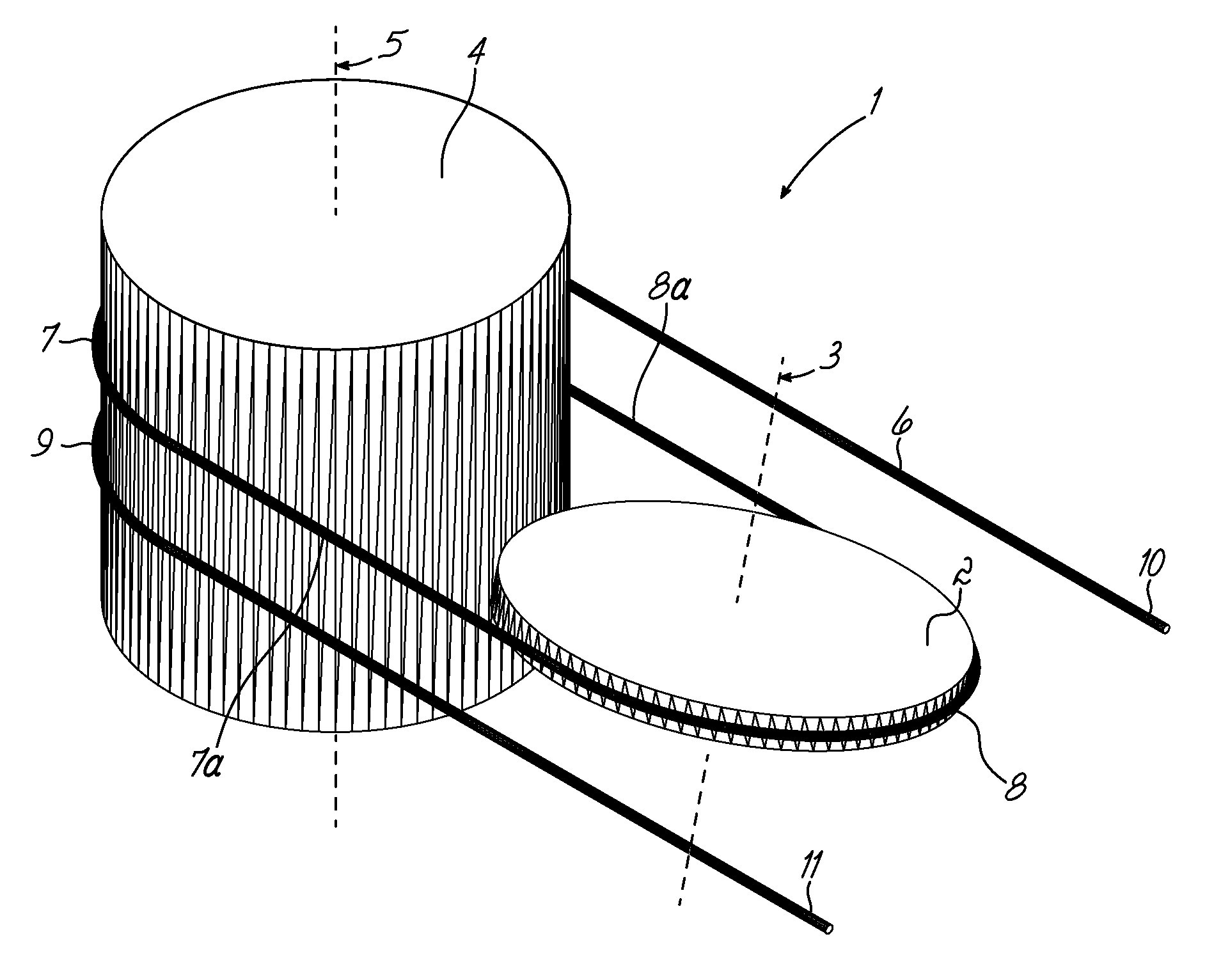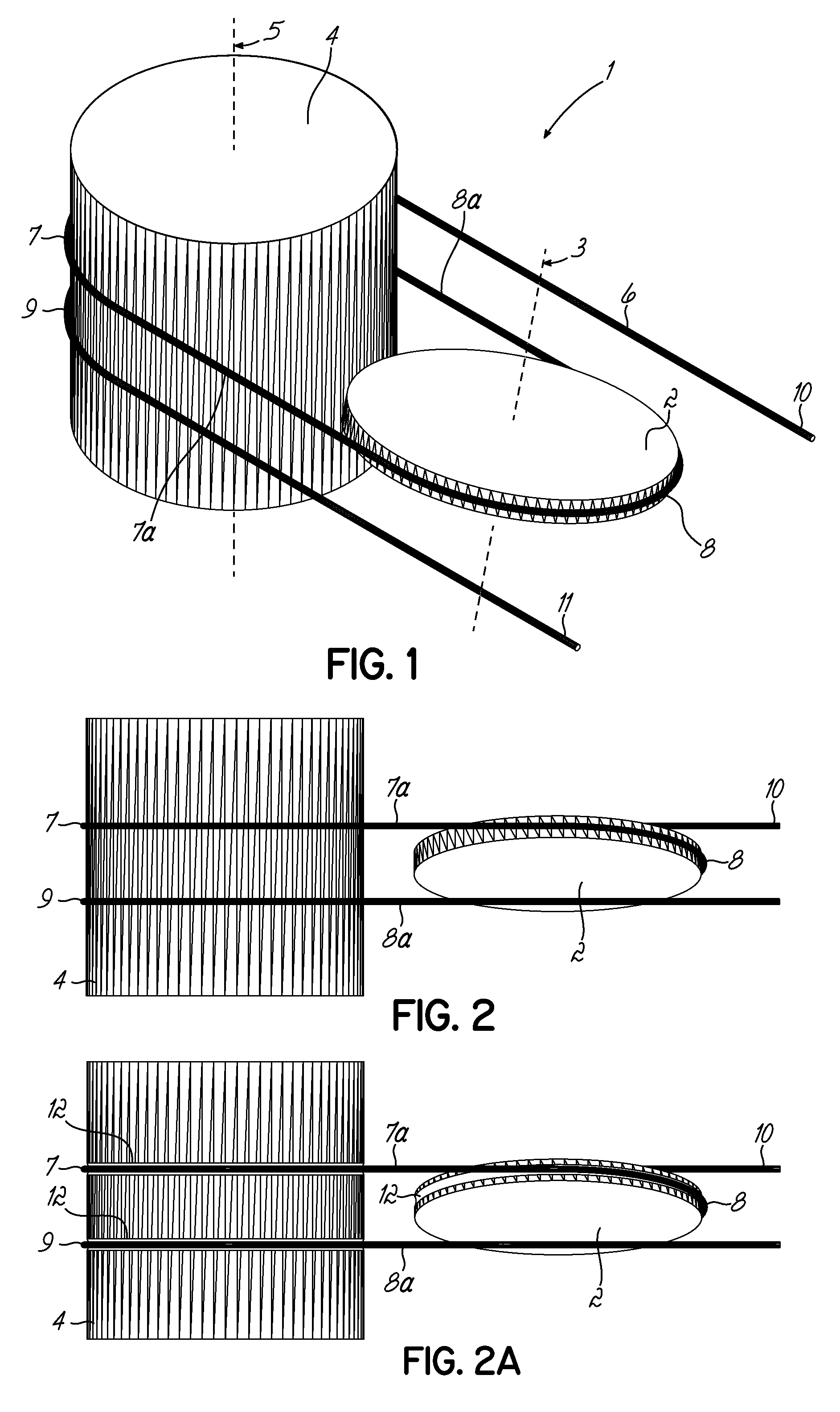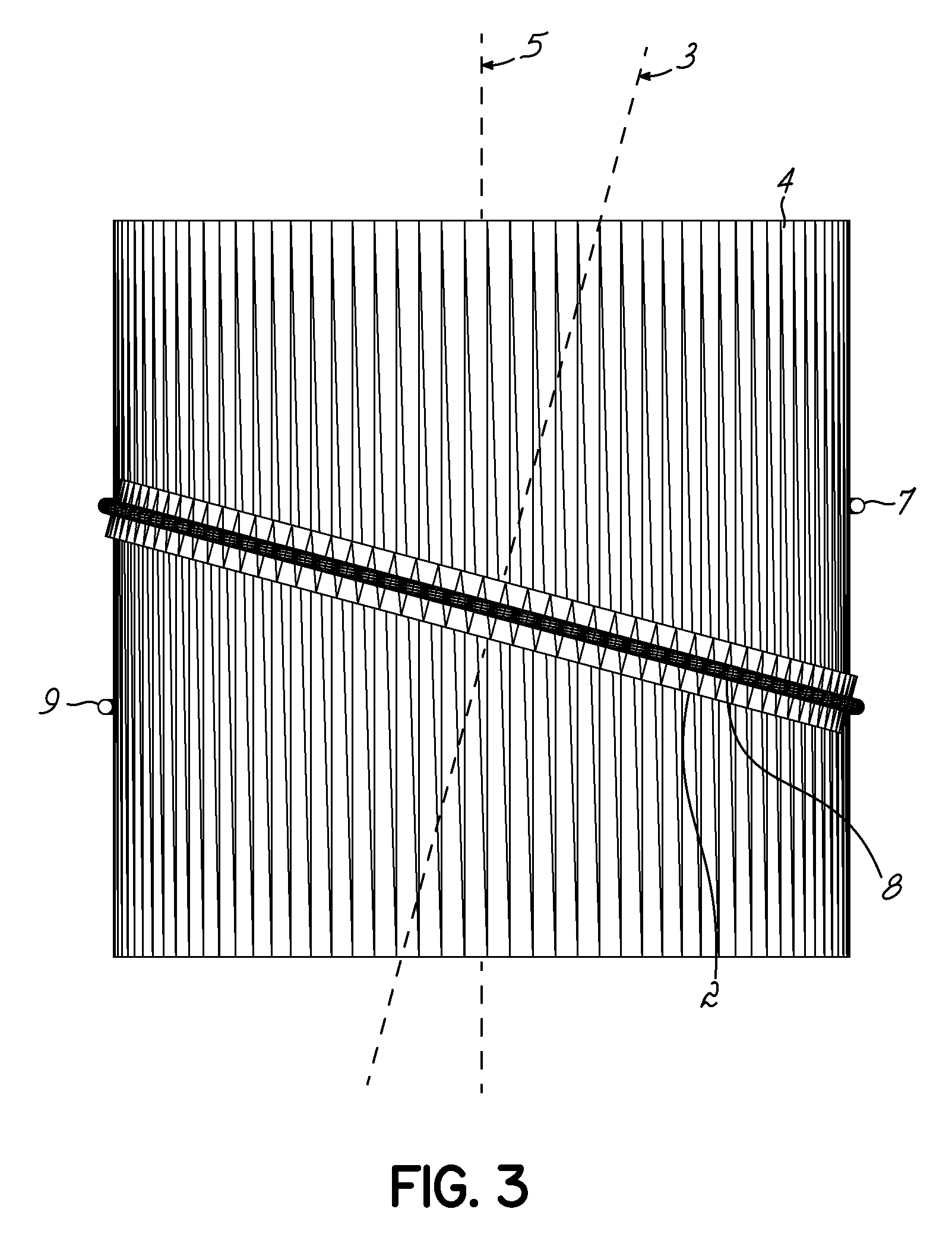Apparatus for guiding a flexible member
a flexible member and apparatus technology, applied in the direction of printers, projectors, cameras, etc., can solve the problems of inability to use the winches of this type in applications, the total length of the line is greater, and the coils in the upper layer of the cable can become embedded into, etc., to achieve the effect of reducing tension, reducing load, and reducing tension
- Summary
- Abstract
- Description
- Claims
- Application Information
AI Technical Summary
Benefits of technology
Problems solved by technology
Method used
Image
Examples
first embodiment
[0059]FIGS. 1 to 3 show an apparatus 1 for guiding a flexible member 6 onto a drum, the apparatus comprising a pulley 2 rotatable about a pulley axis of rotation 3 and a drum 4 rotatable about a drum axis of rotation 5. The pulley axis 3 is inclined at an acute angle relative to the drum axis 5.
[0060]The drum 4 is preferably an elongate cylindrical body. The drum may however be an alternative shape preferably having a curved outer surface. The drum may also be a component, for example an input or output shaft, of a mechanical drive apparatus. The pulley 2 is preferably a further cylindrical body having a shorter axial dimension than the drum. The pulley may however be an alternative shape such as a more elongate cylindrical body forming, for example another drum.
[0061]The pulley axis 3 is spaced from, and inclined to, the drum axis 5 in an arrangement in which the shortest imaginary line extending between the drum and pulley axes is perpendicular to the axes of both the drum and pu...
fourth embodiment
[0090]FIGS. 8 to 10 show an apparatus 301 according to the invention in which one or more additional pulleys may be associated with any drum, each additional pulley adding a further pair of drum portions of wrap on fixed axial diametrical positions on the drum. Each of the pulleys is inclined relative to the corresponding drum so that in use of the apparatus, the pair of drum portions of wrap associated with each pulley remain on different pairs of fixed, axially spaced diametrical planes of the drum and the pulley portion of wrap and the first and second connecting portions of the flexible member path associated with each pulley remain on a fixed diametrical plane of that pulley.
[0091]The pulleys may be arranged in a stacked configuration adjacent to one or more of the drums. The pulleys may be arranged so that the pairs of first and second drum portions of wrap associated with each pulley are adjacent one another on the drum surface or interposed between one another so as to contr...
PUM
 Login to View More
Login to View More Abstract
Description
Claims
Application Information
 Login to View More
Login to View More - R&D
- Intellectual Property
- Life Sciences
- Materials
- Tech Scout
- Unparalleled Data Quality
- Higher Quality Content
- 60% Fewer Hallucinations
Browse by: Latest US Patents, China's latest patents, Technical Efficacy Thesaurus, Application Domain, Technology Topic, Popular Technical Reports.
© 2025 PatSnap. All rights reserved.Legal|Privacy policy|Modern Slavery Act Transparency Statement|Sitemap|About US| Contact US: help@patsnap.com



